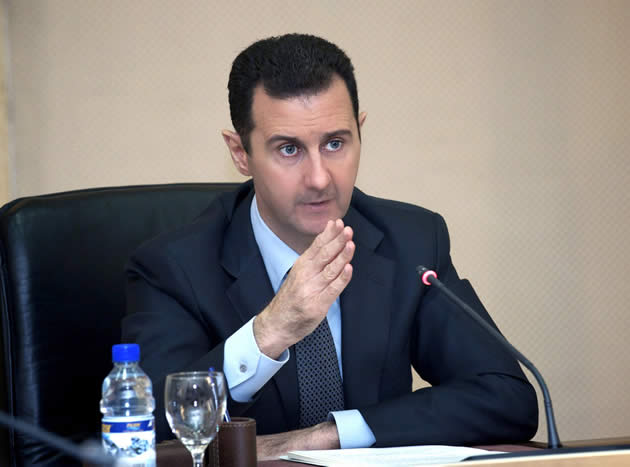Revolution protects its well-being

Reason Wafawarova on Thursday
TODAY, Zimbabwe can easily be identified as a hotbed of the post-independence emancipation struggle, and one can easily see this through the impugned twin policies — land reform and indigenous economic empowerment, otherwise known as the 51 percent local ownership policy.
The emancipation struggle is between those who have for many years been exploiting Africa’s natural resources and using the people of this continent as their tools and slaves; and those who, after realising their weakness and exploitation, have decided to overturn imperial economic hegemony in order to liberate, not only this generation, but all future generations of the country.
It is strategically sad that our liberation struggle heroes front the modern day emancipation struggle.
It needs no explanation that an ageing leadership is not the best to entrust with the custodianship of a contemporary revolution, especially in matters to do with active leadership.
Our liberation war heroes waged a bitter liberation struggle, and today we have most of the same actors precariously fronting a continuing struggle towards total empowerment of the black Zimbabwean.
It is a revolution that continues to take many forms; at times it is a silent struggle, occasionally it explodes like gunpowder, as we saw with the land reclamation revolution, or as we see today with the indigenisation policy, and at times the successes and gains achieved by the people slip away.
However, the resolve must be a matter of principle and should never slip away.
This is not only the situation of Zimbabwe, but also that of Africa since 1956 when African states began to obtain flag independence.
Since that time, many legitimate African governments have been forcefully toppled and new governments established, popular leaders have been assassinated in broad day light and replaced by pliant puppets of the West — from the rise of Joseph Mobutu in Congo at the expense of the murdered revolutionary, Patrice Lumumba, the rise of puppet–turned rebel (against British masters) Idi Amin in Uganda at the expense of the deposed socialist Milton Obote, all the way to the treacherous rise of Blaise Compaore in Burkina Faso at the expense of the brutally murdered yet morally upright revolutionary Thomas Sankara.
Lately, it has been the callous demise of Gaddafi in Libya, and the overthrowing of the democratically-elected Morsi in Egypt.
Today Zimbabwe stands politically divided between supporters of the revolutionary gains of independence and those who support a new generation of politicians who embrace the neo-liberal agenda in partnership with the countries that authored and executed slavery and colonialism in Africa.
In Zimbabwe, the broader perception of the political spectrum is that of sovereignty, independent nationalism and patriotism on the part of Zanu-PF, and neo-liberal democracy on the part of the MDC, or whatever is left of the demising party.
ZANU-PF has assumed the role of spelling out the goals of the country’s revolution, setting up policies and strategies that will ensure that the revolution is safeguarded and consolidated.
We have Zim-Asset as the latest of such policies.
This is no mean role, and the call to defend this revolution is no child’s play.
At the fruition of any revolution, the majority must always have an opportunity to promote their own well-being.
A successful revolution does not end in economic misery, and the arbiter of the politicking lips of populist politicians does not measure its glory.
Zanu-PF has not fared too badly in wrestling power from colonial minorities, but the party cannot honestly boast of having succeeded as much in handing over that power to the majority.
The opposite of a revolution is a counter-revolution: that is, quick and sudden changes which wrest power from the majority and hand it over to a minority with the aim of attaining the selfish goals of a few.
It makes no difference that the skin colour of this minority is identical to that of the marginalised majority.
The greatest aim of our revolution is to liberate the Zimbabwean.
This kind of liberation is not sent from heaven, it is achieved by combating exploitation, corruption, patronage and treachery. Specialists or experts do not bring about liberation.
It is only the majority of the masses that is being humiliated, robbed, exploited and oppressed who are the experts and specialists for their own liberation.
This is why land reclamation was best executed by the masses of Zimbabwe, and not by some land specialists and experts from the world’s renowned universities.
Our independence was a result of a mass uprising, not some sophisticated work of highly learned specialist.
There is no nation in the world that can teach Africans how to liberate themselves, and this is why those among us that believe re-engaging the IMF will bring life-saving economic prescriptions for the country must be exposed for the perfect fools they are.
The duty of liberating ourselves as black Africans lies with us, and the necessary expertise will always emerge during the course of the struggle itself.
After losing elections in Britain in 2010, Gordon Brown intimated his desire to see Africa play a central role in shaping the economic affairs of the world, and he also said Britain and other Western countries must help Africa realise its central role as a vastly resourced continent.
Much as this kind of neo-liberal rhetoric impresses a great number of African leaders today, it is perilous for Africans to expect or hope that the West will help our continent move into a central role in the running of world economic affairs.
We have diamonds in Africa and the diamond industry is estimated at over US$30 billion, US$8 billion of which lies in the extraction of the gems.
The rest lies in processed diamonds.
The West will assist Africa to be experts at extracting its diamonds, while it retains the monopoly of cutting and processing the same.
And we Zimbabweans have euphorically celebrated the kindness of the West in finally accepting us to the Belgian Antwerp Diamond Auction floors, and the whole nation is hoping for an economic overhaul from the proceeds of extracted rough diamonds.
But how then does Africa become central to the diamond industry while controlling only 14 percent of that industry — regardless of having an undisputed monopoly over the diamond resource itself?
Africa is still a continent of people suffering greatly from the weakness inherent in being exploited and humiliated, and we perpetually embrace the hand of our exploiters as the alternative hand of salvation.
The land question is still burning in South Africa, control of mineral wealth is still a burning issue among South Africans, and the role of the black South African in the national economy is a hot issue among the people of that country.
The emerging voice of emancipation gave Julius Malema’s six months old EFF party a sound one million votes in the 2014 election, translating to a decent 25 parliamentary seats.
ZANU-PF may be celebrating the irreversibility of the land reform programme, but the mining sector is yet to meaningfully benefit the national economy, the repossessed farmlands are yet to be fully utilised to capacity. The party is grudgingly courting Western funding for the revival of the country’s faltering economy, a move that makes comical mockery of the anti-treachery rhetoric against the MDC.
Swapo still has to regain Namibia’s mining industry and Frelimo in Mozambique has been opening up to capitalist expansionism on very lenient terms.
We are told Mozambique has “a booming economy,” but there is no evidence of that boom among the country’s vulnerable poor masses.
The African revolution, whose aim is the true liberation of the African, is in conflict with the politics of imperialism, neo-colonisation and capitalist expansionism.
The irony is that Africa has no other formula for running its economies apart from relying on Western capital — the very direct source of most of the woes the continent so much mourns about.
The object of neo-colonialism and imperialism is to ensure that Africa’s wealth is used for the benefit of the capitalists of Europe and America, instead of benefiting the African countries themselves.
Therefore, participating in the African emancipation revolution is participating in the struggle against imperialism, and this is what revolutionary movements like Zanu-PF must be doing.
We cannot keep bragging shamelessly about our revolutionary bravery when only a minority continues to enjoy post-colonial emancipation on our collective behalf.
This is why the guidelines to being a vanguard party must be a matter of public information. ZANU-PF’s accountability machinery must be a matter of public acknowledgement.
Taking power from an oppressive minority is not in and of itself a revolutionary move, not until such power is successfully handed over to the oppressed majority.
It is only such transfer of power that can make the liberation legacy left by our departed heroes a worthy cause.
ZANU-PF must not only preoccupy itself with winning political competition against opposition politics.
Rather the party must make good its election promises as contained in ZimAsset; promises like infrastructural development — the promised road development, 700km new, 500km rehabilitated, 200km widened, and grading 4 000km of rural gravel roads.
Zimbabwe we are one and together we will overcome. It is homeland or death!
REASON WAFAWAROVA is a political writer based in SYDNEY, Australia.










Comments